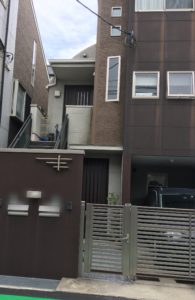Do you know 二世帯住宅[NISETAI JYUTAKU]?
 It is an old custom in Japan, especially in the countryside, for the eldest son to take over the family home.
It is an old custom in Japan, especially in the countryside, for the eldest son to take over the family home.
In other words, the second and third sons live in their own family home after marriage, and the women marry into their partner’s home. However, it is customary for the eldest son to live with the woman he married in the family home where he grew up.
In that rural area, it is possible to live with your parents’ generation because the houses are bigger, but that is not possible in the city.
People who want to live with their parents in the city may build “duplex house” or “multi-generational house” to allow multi families to live in a relatively large house.
| Advantages | Disadvantages |
| Housekeeping and childcare duties can be done in cooperation with each other, and in addition, households with children can support their parents in caring for their children. | The differences in values and rhythms of life between households can still cause stress for each other! |
| Building costs can be reduced. It is easier to save on living expenses because both households can often eat dinner together. | Differences in the way the food is prepared, seasoned, cleaned and washed can cause problems. |
| In addition to the peace of mind of having relatives you can rely on, the contact between grandchildren and grandparents can help them grow up and put up a good fight in the grandparents’ lives! | If a home has a lot of space shared by both households, it can be difficult for each family member to have their own time and space, and it can be difficult to ensure privacy. |
It may occur discords between mother-in-law and daughter-in-law. 嫁姑問題 [YOME SYUTOME MONDAI](よめしゅうとめもんだい)

![二世帯住宅[NISETAI JYUTAKU]](https://second-home-japan.com/wp-content/uploads/2020/10/303346_s.jpg)